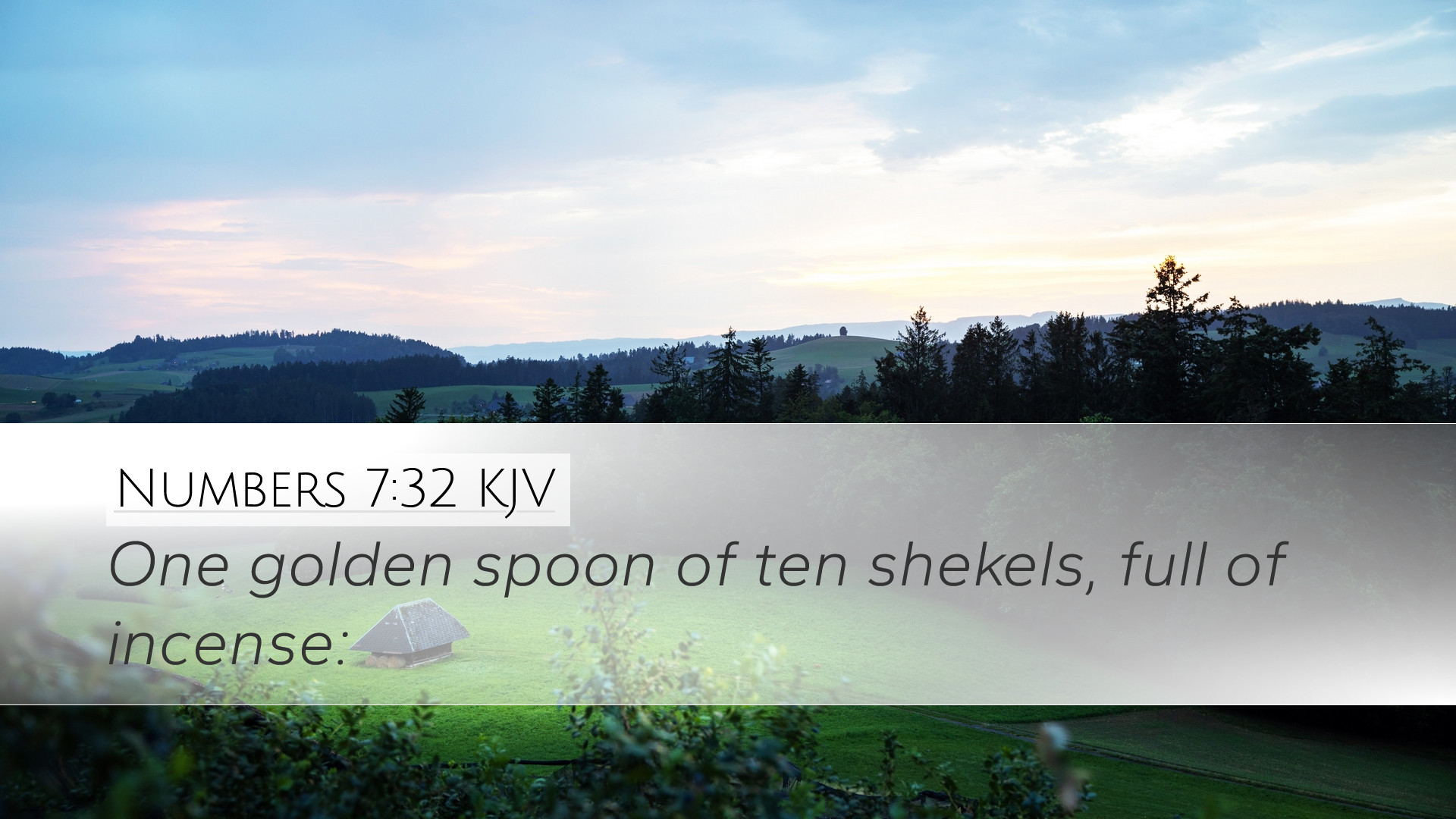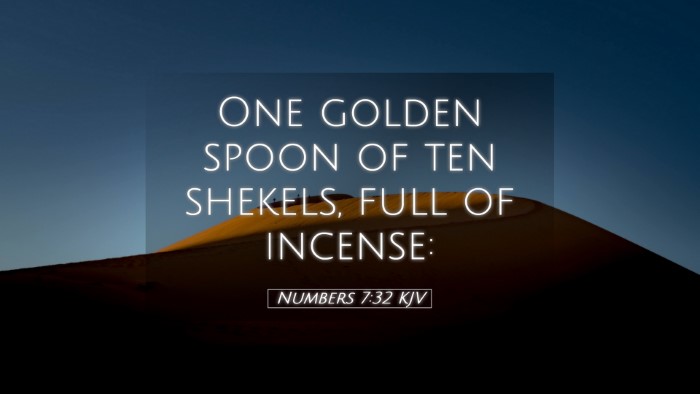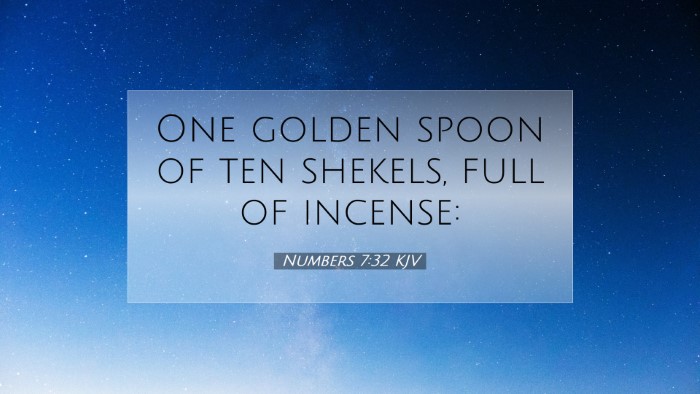Commentary on Numbers 7:32
Numbers 7:32 states:
"And on the sixth day Eliasaph the son of Deuel, prince of the children of Gad, offered."
Contextual Overview
The Book of Numbers provides a detailed account of the Israelites' journey in the wilderness. It captures the significance of organizational structure within the community and the establishment of a tabernacle-centered worship. Numbers 7 encompasses the offerings made by each tribe, highlighting a moment of unity and devotion to God as they prepare for their journey.
The offering by Eliasaph, a representative of the tribe of Gad, signifies both individual and collective dedication. His contribution underscores the importance of leadership, service, and communal responsibility within the broader narrative of the Israelite's covenant with God.
The Leadership of Eliasaph
Eliasaph, as noted in both Matthew Henry and Albert Barnes' commentaries, serves as a significant figure representing the tribe of Gad. His lineage as the son of Deuel is important as it ties him to a particular heritage within Israel, emphasizing the importance of family and genealogy in ancient times.
Leadership Qualities:
-
Authority: Eliasaph, being a prince among his people, illustrates the concept of divinely appointed leadership.
-
Responsibility: He shoulders the responsibility of presenting offerings, showcasing the role of leaders in guiding their communities in worship.
-
Representation: His act serves as a representative offering for the tribe, indicating the corporate aspect of worship in contrast to individualism.
The Significance of Offering
Each offering during this period held profound spiritual significance. As outlined in the commentaries, offerings served multiple purposes:
-
Expression of Gratitude: The act of offering was a demonstration of thankfulness to God for His providence and guidance.
-
Reaffirmation of Covenant: Offerings were a way to reaffirm the people's covenant with God, acknowledging His sovereignty and their commitment to His laws.
-
Act of Worship: The offerings were an essential part of worship, facilitating a closer communion with God.
Thus, Eliasaph’s offering was not simply a ritual act but a deep personal and communal expression towards God.
The Tribe of Gad
The tribe of Gad, as described in various public domain commentaries, had a specific identity and role in Israel's structure. Gad was one of the sons of Jacob, and the tribe bore the significance of being warriors, known for their courage and military prowess.
Characteristics of the Tribe of Gad:
-
Strength and Valor: Often considered as the tribe that would take on the challenges and defend the community.
-
Leadership in Battle: Their characteristics shine through in the biblical narrative, as they were often involved in military arrangements.
-
Encouragement of Faith: Their strong and valiant nature also served to inspire faith among the other tribes, acting as a motivator for collective worship.
Theological Implications
The act of offering by the leaders is a profound theological theme present in Numbers. It acts as a reminder of how both the individual and community engage with God's covenant. The participation of Eliasaph highlights the vital role of communal participation in worship.
Key Theological Themes:
-
Covenantal Relationship: The offerings emphasize the ongoing relationship between God and His people, underscoring faithfulness and commitment.
-
Divine Provision: Each offering acknowledges God as the ultimate provider, reinforcing reliance on His grace and mercy.
-
Holiness of Worship: The rituals surrounding offerings remind the community of the holiness expected in approaching God, reflecting a deep reverence.
Conclusion
In summary, Numbers 7:32 is a passage rich with teachings on leadership, community worship, and the nature of offerings. Eliasaph’s dedication is a model for modern faith communities, urging a spirit of unity and collective worship. This narrative invites pastors, students, and scholars to reflect on their roles and responsibilities within their respective communities and to embrace the sacred act of offering as a continuous part of their faith journey.
The insights from public domain commentaries encourage deeper meditation on how God calls His people to engage through worship, and how leaders can shepherd their congregations in faithfully presenting their lives in service to Him.


